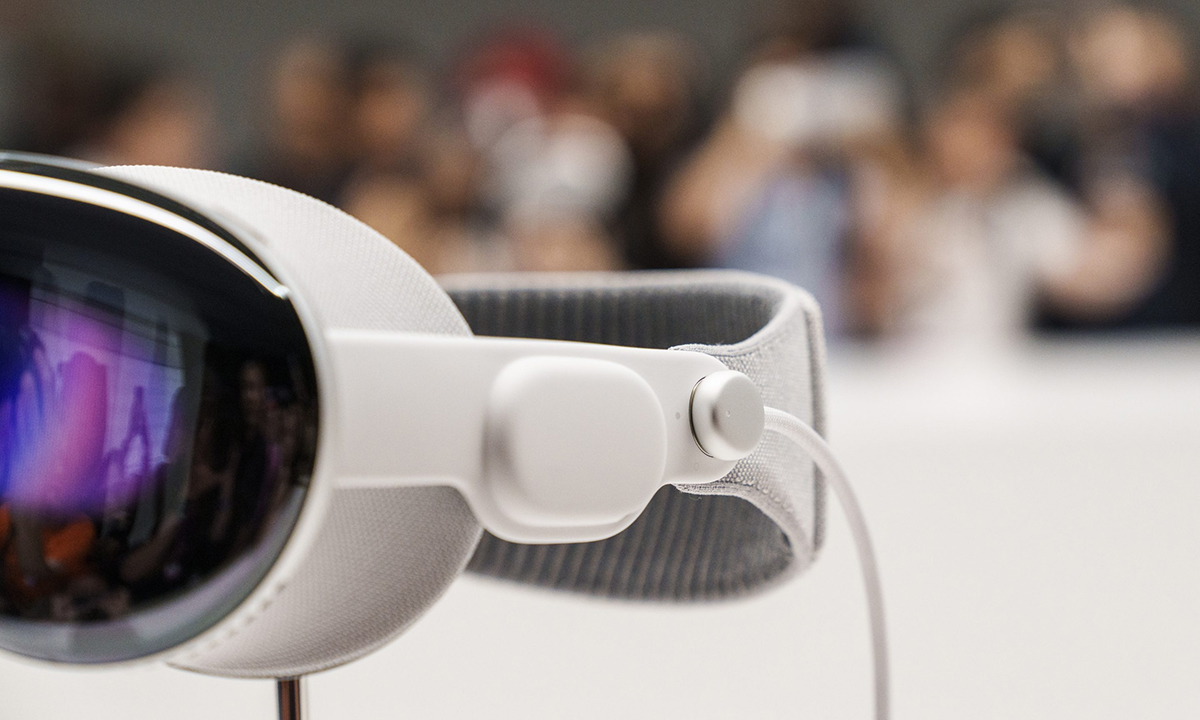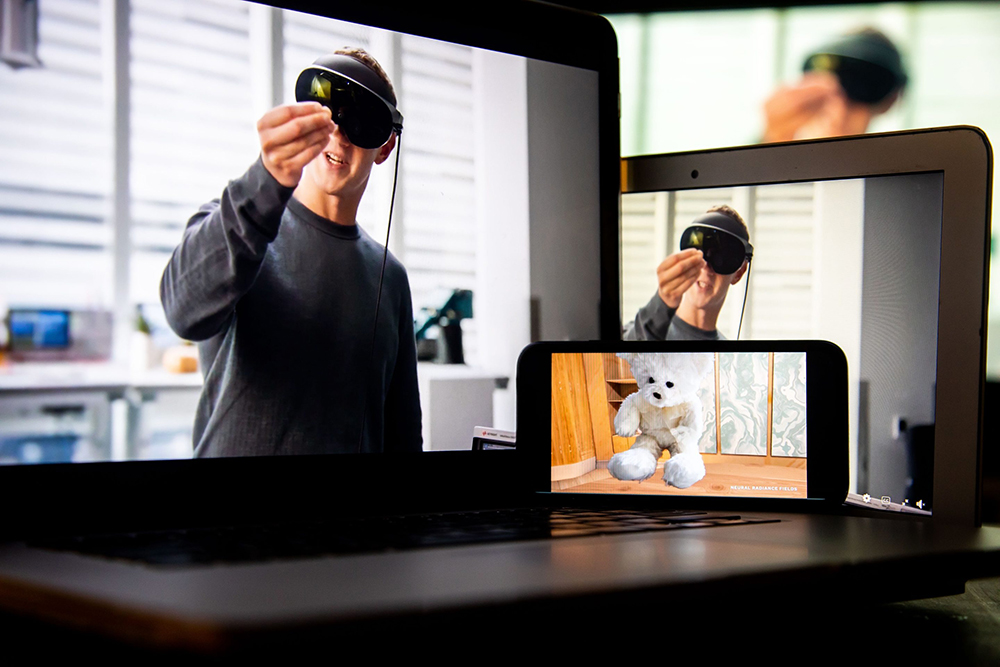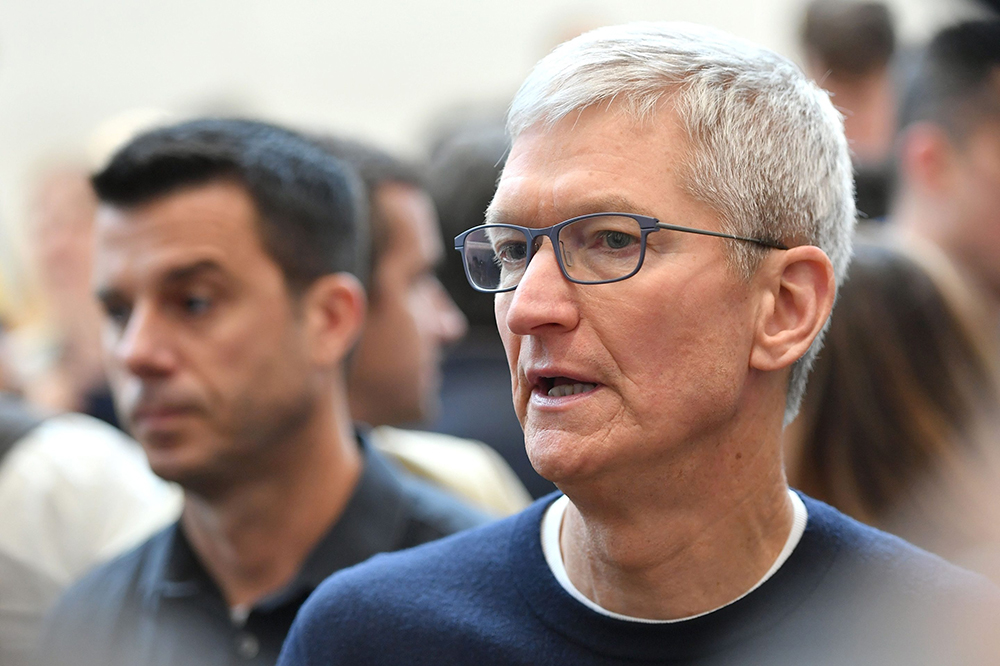
到目前为止,你可能已经听说过苹果公司(Apple)的Vision Pro了(这家iPhone的制造商将于明年发布的头显设备),它的售价为3,500美元。
凭借这款头显设备,苹果公司又一次走上了老路。从十年前最初的谷歌眼镜(Google Glass),到2016年微软(Microsoft)的HoloLens,再到去年Meta售价1,500美元的Quest Pro,大型科技公司曾经多次尝试让智能护目镜成为现实。
这是苹果公司的首席执行官蒂姆·库克多年来一直称赞其在增强现实(AR)领域的重大成就带来的回报。增强现实是一种将数字图像叠加在现实世界之上的技术。
多年来,库克和马克·扎克伯格等行业领袖一再表示,他们认为增强现实有朝一日会取代智能手机,这加大了该技术未来的赌注。谁实现增强现实方面的革命性突破,谁就将成为下一波计算浪潮的中心。
然而,头显设备革命并没有发生,至少在任何类似主流的领域都没有发生。一般而言,头显设备成本太高,性价比太低,而且面临着严格的技术限制,最终让任何佩戴这种护目镜的人看起来像——找不到更合适的词了——一个十足的傻瓜。谷歌和微软各自的增强现实战略都遇到了麻烦,其中的曲折故事太多,无法在这里一一详述。
不过,鉴于苹果凭借iPod和iPhone等产品进入市场较晚,但仍然重新定义了整个类别,因此,押注苹果失败的做法是很不明智的。业界的普遍共识是,如果苹果公司做不到,那就没有其他公司能够做到了。
这里有个“但是”。苹果公司很少进入感知需求如此之少的市场;目前还不清楚到底是什么样的受众需要这样的头显设备。而且,无论这项技术多么令人印象深刻,3,500美元的售价也太高了,尤其是在通货膨胀加剧和经济不确定性上升的时期。
因此,我们不得不怀疑。如果有公司可以做到这一点,那肯定就是苹果公司。但是……如果它做不到呢?最可能的答案就是给智能眼镜扣帽子,而这一新现实可能让竞争对手——尤其是扎克伯格——感到不悦。
苹果公司还远未胜券在握
增强现实护目镜是元宇宙的关键组成部分,即扎克伯格等领导人所说的沉浸式数字宇宙,是现代互联网的下一个迭代。其想法是,增强现实能够把这两个世界结合起来,将数字艺术、建筑和人带到现实世界中的街道和商店。

多年来,这已经从科幻小说变成了非常接近实际的事物。问题在于,对一款基本上只具备智能手机摄像头功能的产品而言,已经推出的头显设备几乎总是过于昂贵。The Verge称最近售价1,500美元的Meta Quest Pro是“一款寻找受众的高端头显设备”。
这条技术路线的最终目标是研发一款不会比一副普通眼镜更笨重的头显设备,并在佩戴者周围投射出沉浸式数字世界。但目前的现实是笨重的头盔式装置,而且电池寿命有限。
虽然苹果公司一直小心翼翼,避免使用“元宇宙”这个词,但Vision Pro与“元宇宙”并无二致。那些有机会试用该设备初级版本的人说,该技术令人印象深刻,有很多你期待从苹果高端产品中体验到的令人惊艳的技术和风格。
换句话说,它正在成为迄今为止最好的增强现实产品,但仍然受到诸多限制,包括两小时的电池续航时间和(佩戴者戴上之后)仍然浑身散发着“书呆子”气息的设计。
此外,Meta Quest Pro似乎并没有真正引起销售轰动;苹果公司产品的要价是这款设备标价的两倍多。对许多人来说,无论该产品多么令人印象深刻,其要价都将是难以接受的事实。
综上所述,苹果公司在尚未被证实的细分市场面临着严峻挑战。该公司正在用一款令人兴奋的产品进行明智的押注,但这可能还不够。
如果苹果公司不能做到这一点,其他公司可以做到吗?

作为消费技术领域事实上的潮流引领者,苹果公司目前的地位可能被证明是一把双刃剑。
如果苹果公司做到了这一点,库克作为首席执行官的传承就将得到保障,而Vision Pro将作为该行业的关键变革时刻而载入史册。扎克伯格在元宇宙的巨大赌注突然被证明是正确的,投资者们争相寻找其他途径从苹果公司的成功中获利,因此,将出现水涨船高的现象。
但是,如果苹果公司没有取得成功——如果这款设备获得差评;如果客户不买账;如果开发者决定不把应用程序放到该平台,那么至少在一段时间内,这对所有从事类似技术工作的人来说就都是噩耗。投资者很可能会惩罚任何希望在这方面追随苹果脚步的公司。毕竟,如果苹果公司都做不到,还有哪家公司可以做到呢?
这可能不会彻底摧毁所有努力。智能护目镜将枯燥的旧现实世界带入数字生活的科幻理念在硅谷和其他地方根深蒂固。然而,至少再过10年,我们才能够看到苹果公司量级的公司在市场上的另一次认真尝试。新兴的增强现实领域将进入可怕的科技“寒冬”的深冻期。
这对Magic Leap这样的初创公司来说是一个坏消息,该公司也推出了自己的增强现实眼镜。对Meta而言,这将是一个更糟糕的消息,该公司已经向其负责虚拟和增强现实产品的Reality Labs部门投入了数百亿美元。
华尔街已经对扎克伯格的元宇宙战略感到不确定。如果苹果公司也尝试几乎相同的事情,但却没有成功,这就只会加剧华尔街的怀疑态度,相当于在需要多头的时候给空头提供武器装备。
综上所述,我们只有在苹果公司和Vision Pro失败的情况下才会看到这种情况。因此,虽然库克和扎克伯格多年来一直存在意见分歧,但也许Meta应该支持苹果公司在增强现实领域取得成功。(财富中文网)
译者:中慧言-王芳
到目前为止,你可能已经听说过苹果公司(Apple)的Vision Pro了(这家iPhone的制造商将于明年发布的头显设备),它的售价为3,500美元。
凭借这款头显设备,苹果公司又一次走上了老路。从十年前最初的谷歌眼镜(Google Glass),到2016年微软(Microsoft)的HoloLens,再到去年Meta售价1,500美元的Quest Pro,大型科技公司曾经多次尝试让智能护目镜成为现实。
这是苹果公司的首席执行官蒂姆·库克多年来一直称赞其在增强现实(AR)领域的重大成就带来的回报。增强现实是一种将数字图像叠加在现实世界之上的技术。
多年来,库克和马克·扎克伯格等行业领袖一再表示,他们认为增强现实有朝一日会取代智能手机,这加大了该技术未来的赌注。谁实现增强现实方面的革命性突破,谁就将成为下一波计算浪潮的中心。
然而,头显设备革命并没有发生,至少在任何类似主流的领域都没有发生。一般而言,头显设备成本太高,性价比太低,而且面临着严格的技术限制,最终让任何佩戴这种护目镜的人看起来像——找不到更合适的词了——一个十足的傻瓜。谷歌和微软各自的增强现实战略都遇到了麻烦,其中的曲折故事太多,无法在这里一一详述。
不过,鉴于苹果凭借iPod和iPhone等产品进入市场较晚,但仍然重新定义了整个类别,因此,押注苹果失败的做法是很不明智的。业界的普遍共识是,如果苹果公司做不到,那就没有其他公司能够做到了。
这里有个“但是”。苹果公司很少进入感知需求如此之少的市场;目前还不清楚到底是什么样的受众需要这样的头显设备。而且,无论这项技术多么令人印象深刻,3,500美元的售价也太高了,尤其是在通货膨胀加剧和经济不确定性上升的时期。
因此,我们不得不怀疑。如果有公司可以做到这一点,那肯定就是苹果公司。但是……如果它做不到呢?最可能的答案就是给智能眼镜扣帽子,而这一新现实可能让竞争对手——尤其是扎克伯格——感到不悦。
苹果公司还远未胜券在握
增强现实护目镜是元宇宙的关键组成部分,即扎克伯格等领导人所说的沉浸式数字宇宙,是现代互联网的下一个迭代。其想法是,增强现实能够把这两个世界结合起来,将数字艺术、建筑和人带到现实世界中的街道和商店。
多年来,这已经从科幻小说变成了非常接近实际的事物。问题在于,对一款基本上只具备智能手机摄像头功能的产品而言,已经推出的头显设备几乎总是过于昂贵。The Verge称最近售价1,500美元的Meta Quest Pro是“一款寻找受众的高端头显设备”。
这条技术路线的最终目标是研发一款不会比一副普通眼镜更笨重的头显设备,并在佩戴者周围投射出沉浸式数字世界。但目前的现实是笨重的头盔式装置,而且电池寿命有限。
虽然苹果公司一直小心翼翼,避免使用“元宇宙”这个词,但Vision Pro与“元宇宙”并无二致。那些有机会试用该设备初级版本的人说,该技术令人印象深刻,有很多你期待从苹果高端产品中体验到的令人惊艳的技术和风格。
换句话说,它正在成为迄今为止最好的增强现实产品,但仍然受到诸多限制,包括两小时的电池续航时间和(佩戴者戴上之后)仍然浑身散发着“书呆子”气息的设计。
此外,Meta Quest Pro似乎并没有真正引起销售轰动;苹果公司产品的要价是这款设备标价的两倍多。对许多人来说,无论该产品多么令人印象深刻,其要价都将是难以接受的事实。
综上所述,苹果公司在尚未被证实的细分市场面临着严峻挑战。该公司正在用一款令人兴奋的产品进行明智的押注,但这可能还不够。
如果苹果公司不能做到这一点,其他公司可以做到吗?
作为消费技术领域事实上的潮流引领者,苹果公司目前的地位可能被证明是一把双刃剑。
如果苹果公司做到了这一点,库克作为首席执行官的传承就将得到保障,而Vision Pro将作为该行业的关键变革时刻而载入史册。扎克伯格在元宇宙的巨大赌注突然被证明是正确的,投资者们争相寻找其他途径从苹果公司的成功中获利,因此,将出现水涨船高的现象。
但是,如果苹果公司没有取得成功——如果这款设备获得差评;如果客户不买账;如果开发者决定不把应用程序放到该平台,那么至少在一段时间内,这对所有从事类似技术工作的人来说就都是噩耗。投资者很可能会惩罚任何希望在这方面追随苹果脚步的公司。毕竟,如果苹果公司都做不到,还有哪家公司可以做到呢?
这可能不会彻底摧毁所有努力。智能护目镜将枯燥的旧现实世界带入数字生活的科幻理念在硅谷和其他地方根深蒂固。然而,至少再过10年,我们才能够看到苹果公司量级的公司在市场上的另一次认真尝试。新兴的增强现实领域将进入可怕的科技“寒冬”的深冻期。
这对Magic Leap这样的初创公司来说是一个坏消息,该公司也推出了自己的增强现实眼镜。对Meta而言,这将是一个更糟糕的消息,该公司已经向其负责虚拟和增强现实产品的Reality Labs部门投入了数百亿美元。
华尔街已经对扎克伯格的元宇宙战略感到不确定。如果苹果公司也尝试几乎相同的事情,但却没有成功,这就只会加剧华尔街的怀疑态度,相当于在需要多头的时候给空头提供武器装备。
综上所述,我们只有在苹果公司和Vision Pro失败的情况下才会看到这种情况。因此,虽然库克和扎克伯格多年来一直存在意见分歧,但也许Meta应该支持苹果公司在增强现实领域取得成功。(财富中文网)
译者:中慧言-王芳
By now, you’ve probably heard all about Apple Vision Pro, the iPhone maker’s $3,500 headset to be released next year.
With its headset, Apple is once again walking a well-trodden path. From the original Google Glass a decade ago, to Microsoft’s HoloLens in 2016, to Meta’s $1,500 Quest Pro last year, there have been many attempts by Big Tech to make smart goggles happen.
It’s the payoff for years of teases from CEO Tim Cook about Apple’s big play in augmented reality (AR), the technology overlaying digital imagery atop the real world.
Leaders like Cook and Mark Zuckerberg have over the years repeatedly said that they see AR as one day supplanting the smartphone, raising the stakes for the future of the technology. Whoever nails the AR revolution stands to become the de facto hub for the next wave of computing.
Yet the headset revolution has not happened, at least not in anything resembling the mainstream. Generally speaking, they cost too much, do too little for the price, face tough technical limitations, and ultimately make anybody who wears them look like—for lack of a better phrase—a complete goober. Google and Microsoft have both hit turbulence with their respective augmented reality strategies, through winding sagas too long to recount here.
Still, it’s rarely wise to bet against Apple, given its track record of entering a market late with products like the iPod and iPhone, and still managing to redefine an entire category. The general industry consensus is that if Apple can’t do it, nobody can.
There’s a “but” here. But Apple has rarely entered a market where there’s so little perceived demand; it’s not clear who exactly is calling for a headset like this. And no matter how impressive the technology, $3,500 is a lot to ask, especially during a time of rising inflation and economic uncertainty.
And so, we have to wonder. If anyone can pull this off, it’s Apple, sure. But…what if it can’t? The likeliest answer is a poisoned well for smart glasses, and a new reality that may not be pleasant for rivals—especially Zuck.
Apple’s victory is far from assured
Augmented reality goggles are a key part of the metaverse, the immersive digital universe that leaders like Zuckerberg say is the next iteration of the modern internet. The idea is that AR can combine those two worlds, bringing digital art, architecture, and people to the physical streets and stores in your real-world field of vision.
Over the years, this has gone from science fiction to something tantalizingly close to practical. The problem is that the headsets that have hit the market are almost always too expensive for a product that mostly just does things your smartphone camera already can. The Verge called the recent $1,500 Meta Quest Pro “a cutting-edge headset looking for an audience.”
The ultimate, pie-in-the-sky goal of this whole line of technological inquiry is a headset no more cumbersome than a pair of normal eyeglasses that projects immersive digital worlds around the wearer. The reality for now though are beefy, helmet-like contraptions with limited battery life.
While Apple has carefully avoided using the word “metaverse,” the Vision Pro is no different. Those who have had the chance to try a preliminary version of the device say that the technology is impressive, with lots of the technical and stylistic flourishes you’d expect from a premium Apple product.
It is, in other words, shaping up to be the best AR product yet—but one that’s still subject to so many of the limitations of its forebears, including a two-hour battery life and a design that still screams “nerd alert.”
Plus, the Meta Quest Pro doesn’t seem to have exactly been a sales sensation; Apple is asking for more than double that device’s sticker price. That’s going to be a tough pill to swallow for many, no matter how impressive the product.
What it adds up to is that Apple is facing some serious challenges in a still unproven niche. The company is making smart bets with an exciting product, but it may not be enough.
If Apple can’t do it, can anyone?
Apple’s position as the de facto trendsetter in consumer technology can prove to be a double-edged sword.
If Apple pulls this off, Cook’s legacy as chief executive will be secure, and the Vision Pro will go down in history as a pivotal moment for the industry. That rising tide will lift many boats, as Zuckerberg’s big metaverse bet suddenly looks vindicated, and investors scramble to find additional ways to cash in on Apple’s success.
If Apple doesn’t pull it off, though—if the device gets bad reviews; if customers don’t bite; if developers decide not to bring apps to the platform—it will poison the well for anybody and everybody working on similar technology, for at least some time. Those same investors will likely punish any company that looks to follow in Apple’s footsteps in this regard. After all, if Apple can’t make it work, who can?
It probably wouldn’t kill the whole endeavor outright. The sci-fi idea of smart goggles that bring the boring old real world to digital life is too deeply ingrained in Silicon Valley and beyond. It would, however, make for at least another decade before we saw another serious attempt at Apple’s level to crack the market. The budding augmented reality space would enter the dreaded deep freeze of a tech “winter.”
That would be bad news for startups like Magic Leap, which offers its own set of AR goggles. It would be worse news for Meta, which has plowed tens of billions of dollars into its Reality Labs unit, responsible for its virtual and augmented reality products.
Wall Street is already uncertain of Zuckerberg’s metaverse strategy. A world in which Apple tried much the same thing and fell short would only exacerbate Wall Street’s skepticism, giving ammunition to the bears at a time when bulls are needed.
All of that said, we’ll only see that scenario if Apple and the Vision Pro fall short. So while Cook and Zuck haven’t always seen eye-to-eye over the years, perhaps Meta should be rooting for Apple to succeed here.






